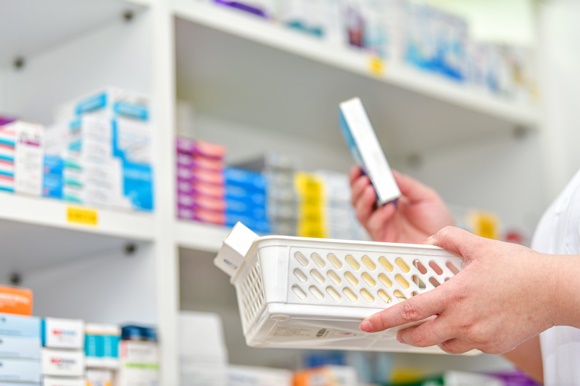
Shutterstock.com
Community pharmacies will receive an estimated 12 referrals from the Discharge Medicines Service (DMS) per year, the Pharmaceutical Services Negotiating Committee (PSNC) has said.
At this referral rate, pharmacies would receive up to £420 per year from the service, if all three parts of the DMS are provided for each referral.
The DMS was launched as an essential service on 15 February 2021, following a delay owing to the COVID-19 pandemic.
Contractors will be paid £35 per referral for providing the full DMS service, or up to £12 for providing one of the three stages within the service.
Through the DMS, patients are referred to community pharmacy after being discharged from hospital.
Once the referral is received, pharmacies are paid £12 to check the referral and compare the medicines the patient has been discharged with to those that were taken before admission, ensuring that medicines awaiting collection are still appropriate.
Contractors are then paid £11 to check that the first prescription received post-discharge takes account of the changes made while the patient was in the hospital.
A further payment of £12 is made once the pharmacist or pharmacy technician has checked that the patient understands their new medicines regimen during a consultation.
All contractors will also receive a setup fee of £400 on 1 April 2021 to cover the costs of training and implementing a standard operating procedure.
In frequently asked questions, the PSNC said the referral rates “will inevitably vary from pharmacy to pharmacy, even when the service is fully mature, as the patient profile of individual pharmacies and the likelihood of their patients being admitted to hospital and then being referred to the DMS at discharge will vary”.
It added that, at the launch date, not all hospitals will be ready to make referrals to the service, which will also impact early referral rate.
“Both these factors make it difficult to accurately model the likely number of referrals that an average pharmacy will receive, once the service has fully matured, but our current best estimate is around 12 referrals per year,” it added.
The PSNC told The Pharmaceutical Journal that this estimation was based on projections made by NHS England for the service.
Alastair Buxton, director of NHS services at the PSNC, said the service was expected to “make a significant positive difference to safety when patients are discharged from hospital”.
“The service will allow community pharmacists and pharmacy technicians to make a real difference by helping their patients with their medicines following discharge from hospital, when confusion with changes to regimens and questions about new treatments can often arise,” he said.
The DMS had been expected to start in July 2020 as part of the ‘Community pharmacy contractual framework for 2019/2020 to 2023/2024’, but was delayed twice owing to the COVID-19 pandemic.
The service aims to reduce the number of hospital readmissions caused by complications relating to medicines prescribed while a patient is in hospital, and was developed following the ‘transfer of care around medicines’ (TCAM) scheme, which has been running in parts of the country since 2014.
Buxton added that while “local TCAM services have laid the groundwork for the DMS in many areas, not all hospitals are ready to make referrals to this new national service just yet”.
“Some NHS Trusts will first need to plan and implement the referral pathway, so rollout is expected to be gradual, with the number of referrals increasing over the year ahead. [The] PSNC and NHS England will be monitoring referral rates over time to ensure the service is being used optimally.”
An evaluation of Cornwall’s TCAM pilot, published on 4 February 2020, saw 365 patients followed up through the service between January 2017 and October 2017, and found that these patients were significantly less likely to be readmitted to hospital within 30 days.


